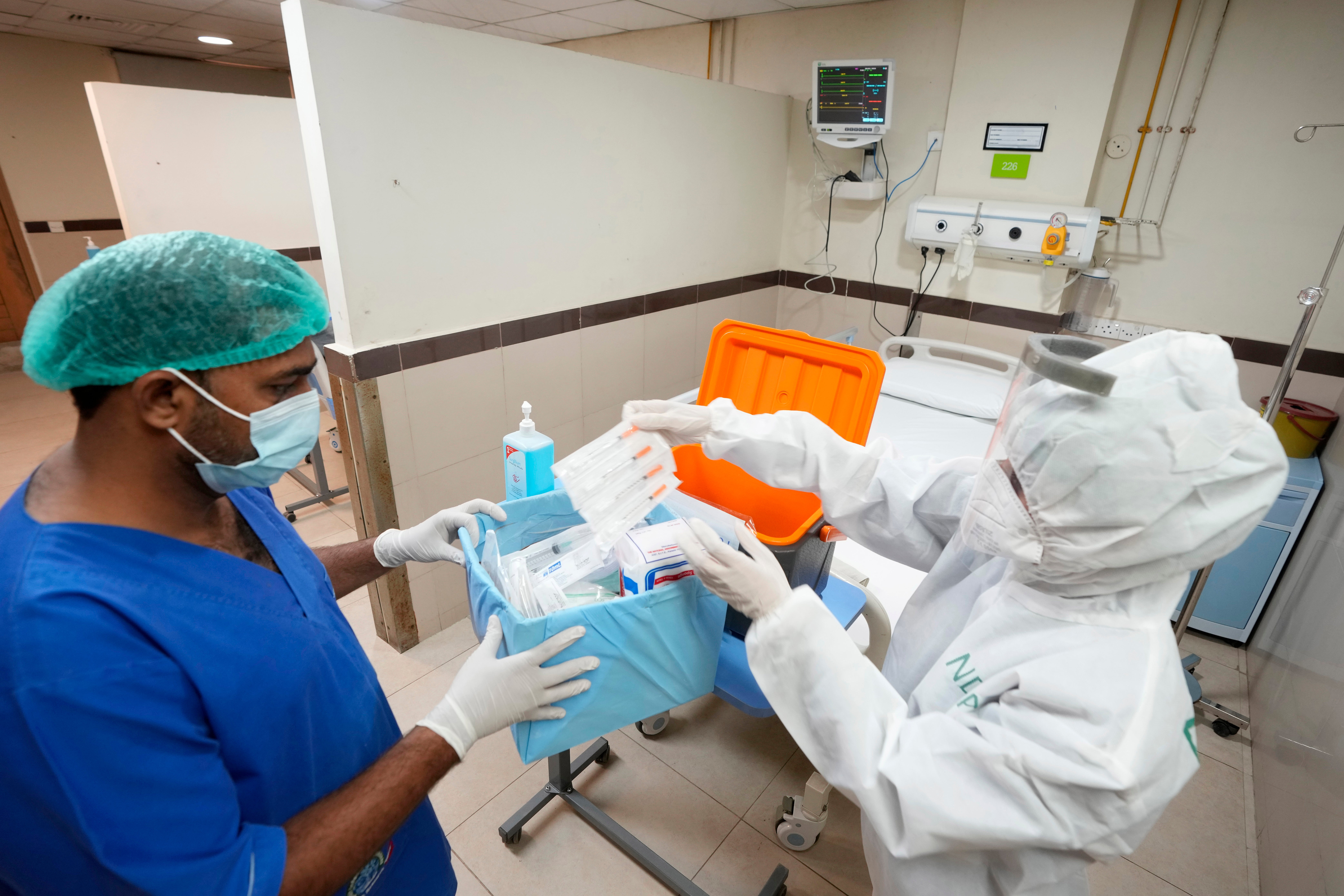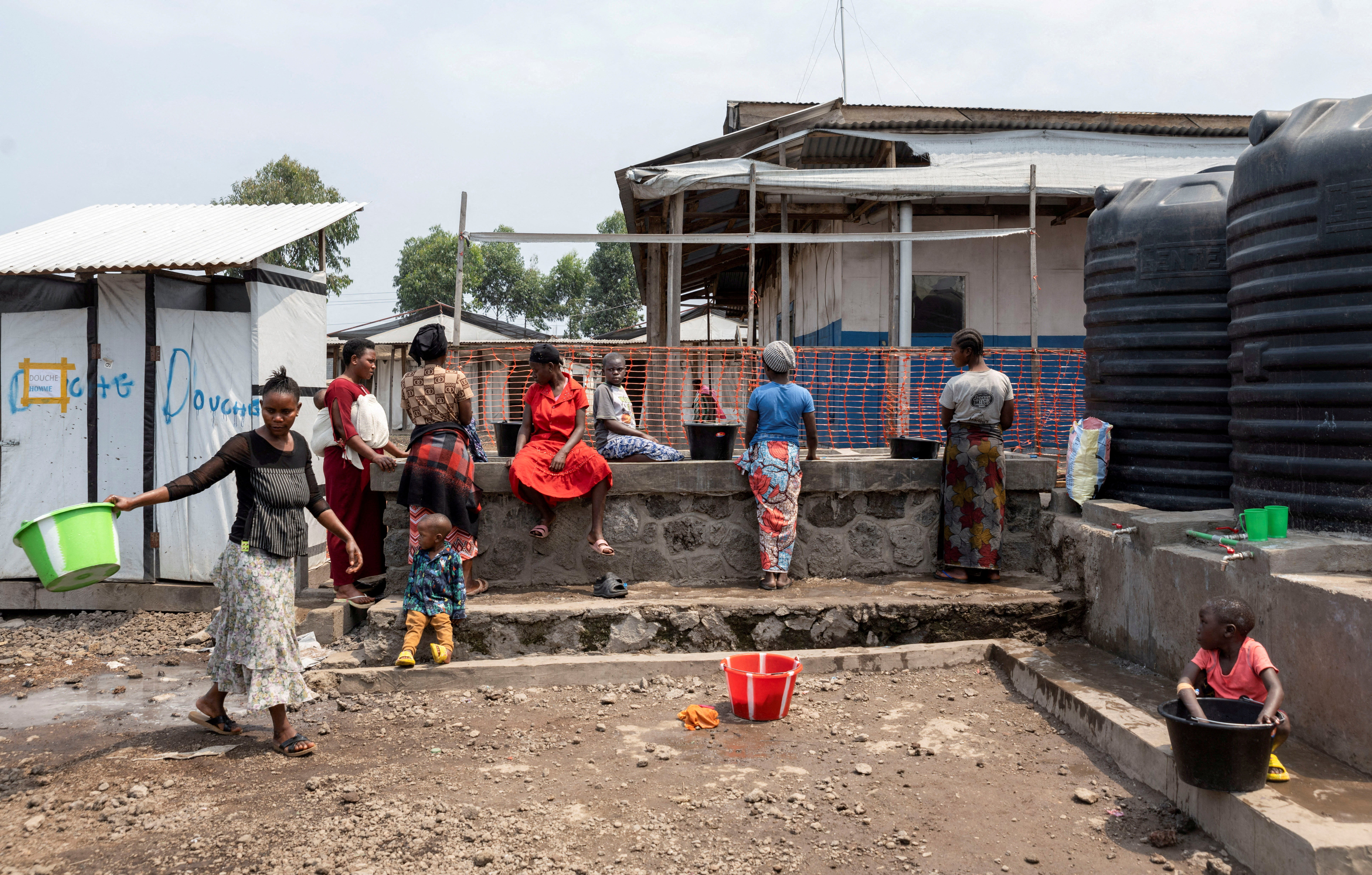Thailand confirms Asia’s first known case of dangerous new mpox variant
European man, 66, arrived in Thailand from an unnamed African country on 14 August
Thailand has confirmed Asia’s first known case of a new, more dangerous strain of mpox in a European traveller.
The patient, a 66-year-old man who arrived from an unnamed African country on 14 August, has tested positive for the Clade 1b variant, which is deadlier and more transmissible.
“Thailand’s Department of Disease Control wishes to confirm the lab test result which shows mpox Clade 1b in a European patient,” the department said in a statement.
The man had minimal contact with other people after he arrived in Thailand and sought medical attention the following day after he experienced symptoms similar to mpox, authorities said.
“We have monitored 43 people who have been in close contact with the patient and so far they have shown no symptoms, but we must continue monitoring for a total of 21 days,” the department said.
Earlier, Thongchai Keeratihattayakorn, head of the Department of Disease Control, told Reuters: “After he arrives from the flight there is very little timeframe where he comes into contact with others.
“He arrived around 6pm and on the next day, 15 August, he went to see the doctor at the hospital.”
He had earlier told AFP that the department had done a test and “they definitely have mpox and it’s definitely not Clade 2”.
“We are convinced the person has the Clade 1 variant, but we have to wait to see the final result in the lab for two more days.”
Thailand previously detected 800 cases of the Clade 2 variant but not any of Clade 1 or Clade 1b.
The European traveller had been placed in quarantine after his arrival in Bangkok, and lab tests were conducted to confirm the strain.
The department added that anyone travelling to Thailand from the 42 designated “risk countries” must register and undergo testing upon arrival.

There are two distinct clades or natural groups of the mpox virus: Clade 1 and Clade 2.
Clade 2 was responsible for the global outbreak which started in 2022. Clade 1 is considered more severe and is classified as a high consequence infectious disease.
The WHO has declared a public health emergency due to a new mpox outbreak in several African nations, with at least three cases now reported outside the continent.
More than 17,000 cases and 571 deaths have been confirmed in Africa so far this year.
In Thailand, authorities have mandated that all international airport disease control checkpoints and ports, particularly at Don Muang and Suvarnabhumi airports and Laem Chabang port, screen passengers arriving from Africa, the Bangkok Post reported.

The Philippines also recently reported its first mpox case of the year, involving a 33-year-old Filipino male with no travel history, the Department of Health announced on Monday. The patient is currently recovering in a hospital.
“We’re lucky because this mpox we found [here] was the original variety, clade 2. Mpox entered the country and [is] probably circulating in our community,” country’s health secretary Teodoro Herbosa was quoted as saying by news channel ANC.

Elsewhere in the region, Indonesia is implementing screening measures at its entry points. The Malaysian health ministry also announced it will start preventive measures, including increased surveillance at international entry points, requiring travellers from countries with mpox cases to monitor their health for 21 days.
Vietnam’s health ministry stated in a directive on Monday that it will monitor for “suspected cases at the border” and report them to a central database.
Join our commenting forum
Join thought-provoking conversations, follow other Independent readers and see their replies
Comments
Bookmark popover
Removed from bookmarks